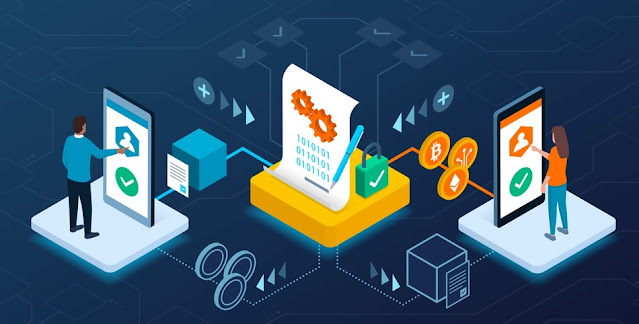Blockchain and Ecommerce: A Match Made in Tech Heaven
Blockchain and e-commerce have both disrupted traditional business models and revolutionized the way people interact with technology. While blockchain technology is primarily known for its role in cryptocurrencies, it also has potential applications in a range of industries, including e-commerce. In this article, we explore the relationship between blockchain and e-commerce and how they can be combined to create a powerful and secure platform for online transactions.
What is Blockchain?
Blockchain is a decentralized and distributed digital ledger that records transactions in a secure and transparent manner. Each block in the chain contains a list of transactions and a unique cryptographic signature, or "hash," that links it to the previous block. This creates an unalterable record of all transactions, making it difficult for any one party to manipulate or compromise the data.
What is E-Commerce?
E-commerce refers to the buying and selling of goods and services online. It has grown rapidly in recent years and is now an integral part of the global economy. E-commerce platforms such as Amazon, Alibaba, and eBay have become household names, and millions of people now buy and sell products online every day.
How Can Blockchain and E-Commerce Work Together?
There are several ways in which blockchain technology can be used to enhance the e-commerce experience. Here are a few examples:
Increased Security: One of the biggest challenges facing e-commerce is the security of online transactions. Blockchain technology can help to address this issue by providing a secure and transparent ledger of all transactions. By using blockchain, e-commerce platforms can prevent fraud and reduce the risk of hacking and data breaches.
Faster and Cheaper Transactions: Traditional e-commerce transactions require intermediaries such as banks, payment processors, and credit card companies to process and validate transactions. These intermediaries often charge high fees and can slow down the transaction process. Blockchain technology can eliminate the need for intermediaries and allow for faster, cheaper transactions.
Improved Supply Chain Management: Blockchain technology can also be used to track the journey of goods from the manufacturer to the consumer. This can improve transparency and accountability in the supply chain and help to reduce waste and inefficiencies.
Enhanced Customer Experience: Blockchain technology can also be used to create a more personalized shopping experience for customers. For example, customers could use a blockchain-based platform to store and manage their personal information and preferences. This information could then be used to personalize the shopping experience and offer more relevant and targeted product recommendations.
Decentralized Marketplaces: Decentralized marketplaces, also known as peer-to-peer marketplaces, are a type of e-commerce platform that use blockchain technology to connect buyers and sellers directly. This eliminates the need for intermediaries and reduces transaction fees, creating a more efficient and cost-effective market. Additionally, decentralized marketplaces are more secure and transparent, as all transactions are recorded on the blockchain ledger and cannot be altered or manipulated.
Tokenization of Assets: Blockchain technology also allows for the tokenization of assets, including physical assets such as real estate and artwork. This opens up new opportunities for e-commerce platforms, as customers can now buy and sell tokenized assets directly on the platform. Additionally, tokenization can make it easier to track ownership and provenance of assets, improving transparency and reducing the risk of fraud.
Loyalty Programs: Blockchain technology can also be used to create more robust and effective loyalty programs for e-commerce platforms. For example, customers could earn loyalty points or rewards in the form of blockchain tokens, which can be redeemed for discounts, products, or other benefits. This would create a more engaging and incentivizing loyalty program for customers, improving customer satisfaction and loyalty.
Protection of Intellectual Property: Blockchain technology can also be used to protect intellectual property in the e-commerce space. For example, online marketplaces can use blockchain technology to track the ownership and distribution of digital assets such as music, movies, and software. This would help to prevent piracy and ensure that content creators are fairly compensated for their work.
In conclusion, the potential applications of blockchain technology in the e-commerce space are vast and exciting. By using blockchain technology, e-commerce platforms can provide a more secure, efficient, and engaging shopping experience for customers. Additionally, blockchain technology can help to reduce fraud and increase transparency, making e-commerce more trustworthy and sustainable. As the technology continues to evolve, we can expect to see more and more innovative applications of blockchain in the e-commerce space.






Post a Comment